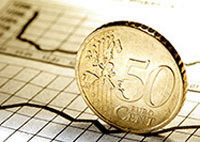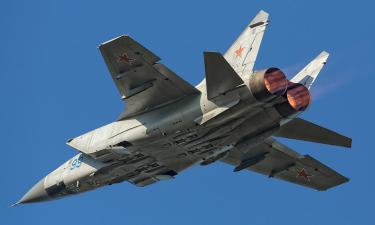Europe's economy contracts at fastest pace in 13 years
Europe’s economy contracted at the fastest pace in at least 13 years in the first quarter as companies cut output and jobs to survive the worst global slump in more than six decades.

Gross domestic product in the 16-member euro region dropped 2.5 percent from the fourth quarter, when it fell 1.6 percent, the European Union’s statistics office in Luxembourg said today.
That’s the biggest drop since the euro-area GDP data were first compiled in 1995 and exceeded the 2 percent decline economists expected in a Bloomberg News survey. Inflation held at 0.6 percent in April, a separate report showed.
The deepest global recession since World War II is curbing European exports and eroding consumer demand, forcing companies to cut spending and jobs. The German and Italian economies also contracted by the most on record in the first quarter. Hong Kong ’s economy shrank at the fastest pace since at least 1990, prompting the government to forecast a full-year contraction of as much as 6.5 percent.
“The recession is an exceptionally deep one,” said Kenneth Wattret, chief euro-region economist at BNP Paribas in London. “The headwinds to growth are considerable, consistent with output contraction and sharply rising unemployment for some time to come.”
From a year earlier, the euro-area economy shrank 4.6 percent, also the biggest drop on record, today’s report showed. The statistics office is scheduled to publish a breakdown of first-quarter GDP on June 3. The European Commission on May 4 cut its outlook to project a contraction of 4 percent this year and 0.1 percent in 2010.
In Germany, Europe’s largest economy, GDP dropped 3.8 percent in the first quarter from the previous three months. That’s the biggest drop since data were first compiled in 1970. Italian GDP fell 2.4 percent, the most since records began in 1980, and the French economy shrank 1.2 percent in that period. The economies of the Netherlands and Austria also contracted, Bloomberg reports.
Meanwhile, reports in London that Barclays PLC is discussing the possible sale of its Barclays Global Investments unit caused its shares to rise as much as 9 percent. The Financial Times said Barclays was discussing a potential $10 billion sale of the unit with New York-based BlackRock Inc.
Stock markets were also higher in Asia, where investors were encouraged by data showing Japanese machinery orders in March fell less than expected.
Analysts said investors' hopes for a rebound in growth later this year were proving robust, even in the face of weak U.S. retail sales data, which earlier this week showed American consumers — one of the engines of world growth — are not yet ready to spend again.
"Investors tend to look ahead and they don't want to get caught out during the recovery. That's why you're seeing some resilience," said Lorraine Tan, director of equities research at Standard & Poor's in Singapore.
Japan's Nikkei 225 stock average gained 171.29 points, or 1.9 percent, to 9,265.02, and Hong Kong's Hang Seng added 249.01, or 1.5 percent, to 16,790.70.
In other markets, South Korea's Kospi edged up 0.8 percent, Australia's index gained 1.3 percent and Taiwan's market rose 2 percent.
Exporters, including electronics and auto makers, were among the top gainers in Tokyo trade, as the yen's strength abated. Sony Corp. soared 7.1 percent, Sharp Corp. surged 6.1 percent and Toyota Motor Corp. gained 2.3 percent, the AP reports.
Wall Street futures also pointed to a higher open in the U.S. Friday. Dow futures were up 18 points at 8,305 and Standard & Poor's 500 futures rose 1.9 to 891.40.
Overnight, the Dow rose 46.43, or 0.6 percent, to 8,331.32. The S&P 500 index rose 9.15, or 1 percent, to 893.07, while the Nasdaq rose 25.02, or 1.5 percent, to 1,689.21.
Oil prices hovered below $59 a barrel Friday in Asia as signs of a weak U.S. economy led investors to mull whether this month's crude rally was justified. Benchmark crude for June delivery was up 11 cents at $58.73; the contract climbed 60 cents overnight.
Subscribe to Pravda.Ru Telegram channel, Facebook, RSS!




